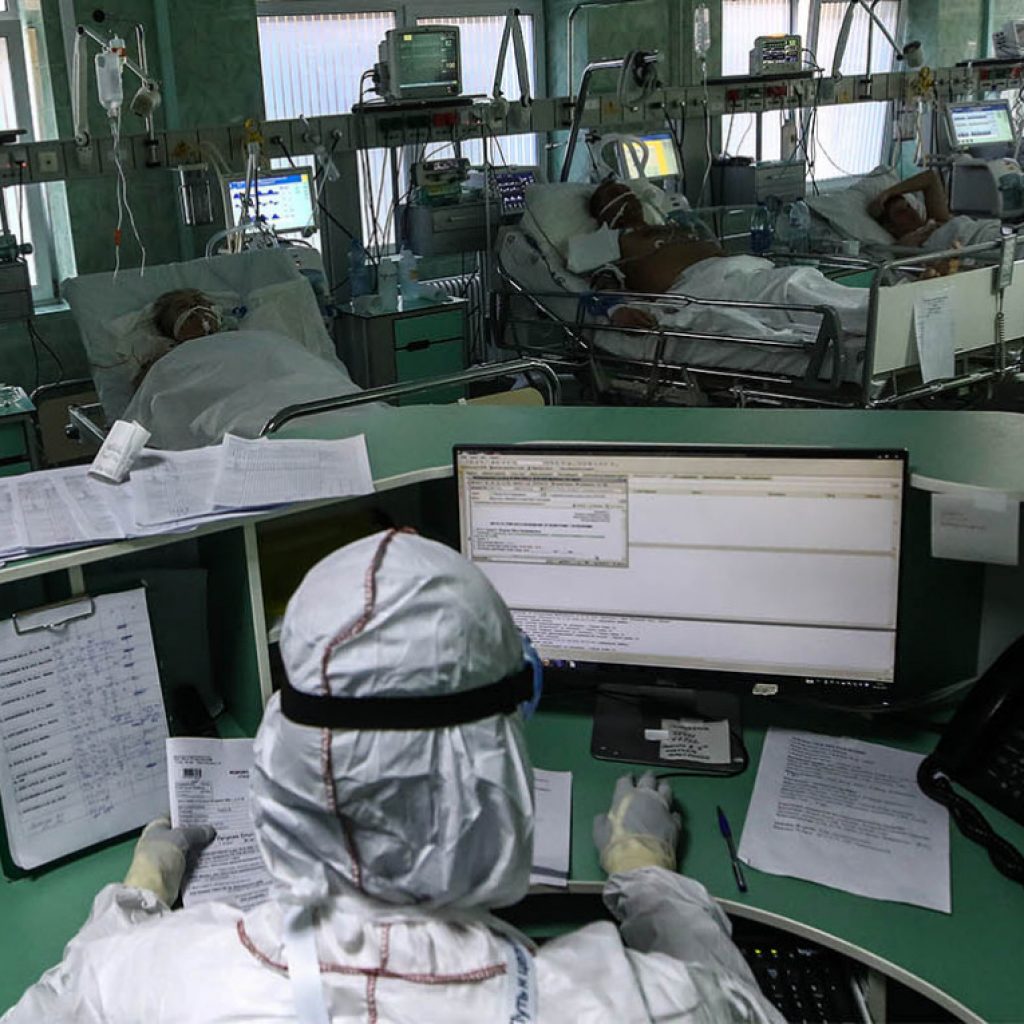RA’s Daily Russia News Blast – May 4, 2020

Today in Russia: Cases continue to rapidly climb, but peak not yet reached; Putin to hold meeting Wednesday about re-opening; Russia trails US and UK naval vessels; Prague intrigue continues; Russian “bluff” over arctic oil cuts; Germany announces continued support for NordStream 2 despite regulatory issue; Ruble falls; Banks borrow record amount from central bank; “Was Russia destined to be an autocracy?”
COVID-19 cases continued to climb over the weekend. Russia added 10,581 new cases on Monday, a new record and the second straight day of over 10,000 new cases. It brought the total confirmed cases to 145,268, the seventh largest in the world. A Health Ministry official said the country is still not at the peak [in Russian] of the virus, and put the blame for the skyrocketing cases on the citizenry for not following through on quarantine measures.
On May 6, President Vladimir Putin will hold a meeting to discuss the schedule to re-open the economy and end restrictions.
For the first time since the 1980s, four U.S. Navy ships and a Royal Navy vessel entered the Barents Sea to conduct drills in an arctic maritime environment. The US Navy said that the Russian authorities were notified of such drills “in an effort to avoid misperceptions, reduce risk, and prevent inadvertent escalation.” Russia’s Northern Fleet tracked the movements [in Russian] of the vessels.
The intrigue over an alleged Russian plot to poison officials in Prague has continued. Prague District Mayor Ondrej Kolar gave an interview to the Financial Times and confirmed that “There is a threat that the police have identified, and that threat is linked directly to Russia.” Prague Mayor Zdenek Hrib, who oversaw the renaming of the square in front of the Russian Embassy after slain Russian politician Boris Nemtsov, has not addressed the reasons he has been put under police protection. The Russian government has denied the allegations and called the alleged plot a “hoax.”
The New York Times writes that Russia’s claims that it could not cut arctic production has been exposed as a bluff, noting that, “For most of the post-Soviet period, energy officials in Russia have resisted OPEC entreaties to participate in production cuts to help prop up oil prices, arguing that doing so was impossible because of the country’s cold climate.” However, faced with a large glut of oil and nowhere to put it, Russia is cutting production by a fifth, with many of the cuts coming from arctic wells. The NYT continues, “Oil analysts have called the cold weather claim one of the global oil industry’s biggest geopolitical bluffs, one which Russian officials carried off with a straight face for decades to deflect OPEC demands for help with prices.”
The German government announced its continued support [in Russian] for Gazprom’s NordStream 2 pipeline, after a German regulator called into question the possibility that NordStream 2 would enjoy an exception to anti-monopoly rules which would call the project into question.
The Ruble fell [in Russian] against the dollar to 75, and fell against the Euro to 83, 1.57 and 1.61 percent higher than their close on April 30, respectively.
Russian banks borrowed the largest amount from the central bank since 2014. RBC wrote, “Amid falling markets and the ruble in March, banks increased borrowings from the Bank of Russia to a record since the crisis of December 2014. They stockpiled liquidity in case of potential problems, experts explained.”
“Was Russia destined to be an autocracy?” JSTOR Daily draws on the writing of political scientist and former US Ambassador to Russia Michael McFaul, who left the country in 2014 after an often confrontational tenure. McFaul argues,
First, revolutionary change simply “made democratic emergence less likely” in the chaos of “empire collapse, political change, and economic transformation,” as the USSR broke up into fifteen newly independent states. The economic collapse of the Russian portion of the old USSR has been described by the World Bank as much worse than the Great Depression in the United States. As McFaul relates, “Crime rates spiked; life expectancies, especially for men, dropped dramatically; and illegal drug use soared, fueling a growing AIDS crisis.”
Second, Russian elites “made decisions that first promoted democracy, but then undermined democracy and encouraged autocracy.” An example of this was the “super-presidential” powers embodied in the 1993 constitution, which set the stage for any autocrat wiling to to use them.
Third, “legacies from the Soviet era provided institutional material for autocratic restoration.” Vladimir Putin himself was a KGB apparatchik, able to draw on a corrupt and totalitarian police force. The KGB had been discredited by its role in the 1991 coup, but it bounced back with a vengeance, shedding only its Soviet name.
McFaul writes that Russian autocracy came down to people: “Individual choices at pivotal moments pushed Russia towards a more autocratic path and then produced a reordering of preferences and power in favor of continuity with this new autocratic arrangement. Actors, not structures, were the drivers of these changes—both towards democracy and then away from it.”
For McFaul, “the single, most consequential choice in Russia’s return to autocracy was Yeltsin’s decision to select Putin as his successor.”
PHOTO: A hospital filled with COVID-19 patients in Russia (Valery Sharifulin / TASS)











